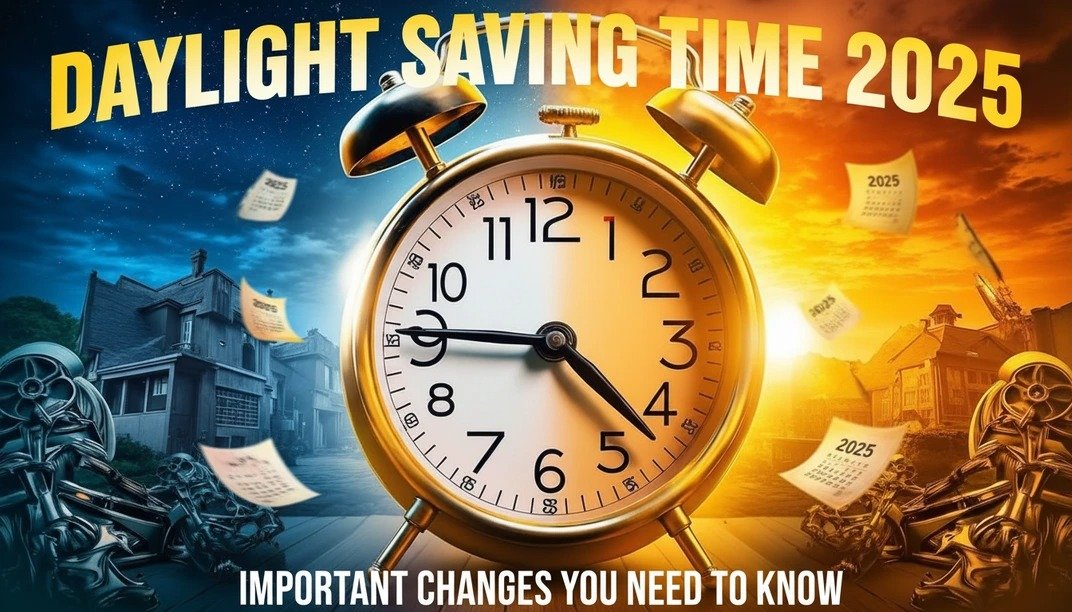In order to utilize the maximum daylight in the summer, Daylight Saving Time (DST) was enacted. This system was used in the USA, Canada, and most of Europe. In the year 2025, the clock of most countries will be moved forward by one hour on March 9 and back by one hour on November 2.
Countries like India do not follow Daylight Saving Time within the year and, saving for one exception in a month, are in the same time zone. Hence, there is only an hour of time differential for means of international business and communication between India and the U.S.
What is Daylight Saving Time?
Daylight Saving Time involves moving the hands of the clock one hour ahead during summer months. Its main objective is to save electricity energy and make the access of evening light utilize the most. This process is being implemented as an operation of “forward” and “backward” in the clock in the spring and summer time and in autumn, respectively.
Dates of Daylight Saving Time in 2025
Daylight Saving Time in 2025 is slated to start at 2 a.m. on March 9, with the clock moving ahead one hour, and conclude on November 2, when clocks are turned back one hour.
$1,400 Stimulus Checks Sends By IRS to 1 Million Taxpayers: What You Need to Know!
| Year | Daylight Saving Time Begins | Daylight Saving Time Ends |
|---|---|---|
| 2025 | Sunday, March 9 at 2:00 A.M. | Sunday, November 2 at 2:00 A.M. |
| 2026 | Sunday, March 8 at 2:00 A.M. | Sunday, November 1 at 2:00 A.M. |
| 2027 | Sunday, March 14 at 2:00 A.M. | Sunday, November 7 at 2:00 A.M. |
| 2028 | Sunday, March 12 at 2:00 A.M. | Sunday, November 12 at 2:00 A.M. |
Global Importance of Daylight Saving Time
Daylight Saving Time applies in about seventy countries, just under 40% of all countries around the world. Operations to this end encompass about 1 billion people each year.
North America
- The United States: The majority of states will observe DST on March 9, 2025, and value will be assigned at the completion date of November 2. Hawaii and Arizona (except for the Navajo Nation) do not practice DST.
- Canada: Most provinces follow the same system as the US, except for Saskatchewan.
Europe
- In the European Union, the last Sunday in March (30/03/2025) is marked by daylight saving time that lasts up to the last Sunday in October (26/10/2025).
Oceania
The territories in Oceania that observe daylight saving time include:
- Australia: New South Wales, Victoria, South Australia, Tasmania, and the Australian Capital Territory observe DST from the first Sunday in October to the first Saturday in April.
- New Zealand: DST is normally from the last Sunday in September to the first Sunday in April.
India and others
- India: All people of India enjoy the same time throughout the year because no state follows daylight saving time.
- Japan and China: These two states have daylight saving times as well but they are not followed.
Benefits and effects due to daylight saving time
Pros:
- Energy savings: Many experts believe the amount of energy consumed lessens when more daylight is available during the evening hours.
- Boom for the economy: One can shop longer until the evening and enjoy doing other activities as well.
Cons:
- Health hazards: Just like the body’s circadian rhythm, which is natural, DST can disorient things.
- Sleep disturbances: If you suffer too much or enjoy insufficient slumber.
How to prepare for Daylight Saving Time?
- Change sleep time gradually: Start sleeping early, like 15-20 minutes every day, one week before the time change.
- Get on with your normal daily stuff: Stick to regular meal times, exercise, and other daily routine activities.
- Get early morning natural light: Go and catch the rays of the daytime early.
- Avoid caffeine and alcohol: These substances are detrimentally affecting sleep quality.
The increase in Social Security payments for retirees in January 2025
Conclusion
Daylight Saving Time is an efficient way to save energy during the summer and make the best use of the evening light. But it can affect health and sleep. When countries do not follow it, like India, it is good to consider time differences in international communication and business.
Daylight Saving Time is not only a time management system but also a topic relating to lifestyle, health and economy. And we need to use it wisely.
FAQs
1. What is Daylight Saving Time (DST)?
A. Daylight Saving Time (DST) is the practice of setting the clock forward by one hour during the warmer months to extend evening daylight and reduce energy consumption.
2. When does Daylight Saving Time start in 2025?
A. In 2025, Daylight Saving Time will begin on Sunday, March 9, 2025, at 2:00 AM. Clocks will move forward one hour.
3. When does Daylight Saving Time end in 2025?
A. DST will end on Sunday, November 2, 2025, at 2:00 AM. Clocks will be set back one hour to standard time.
